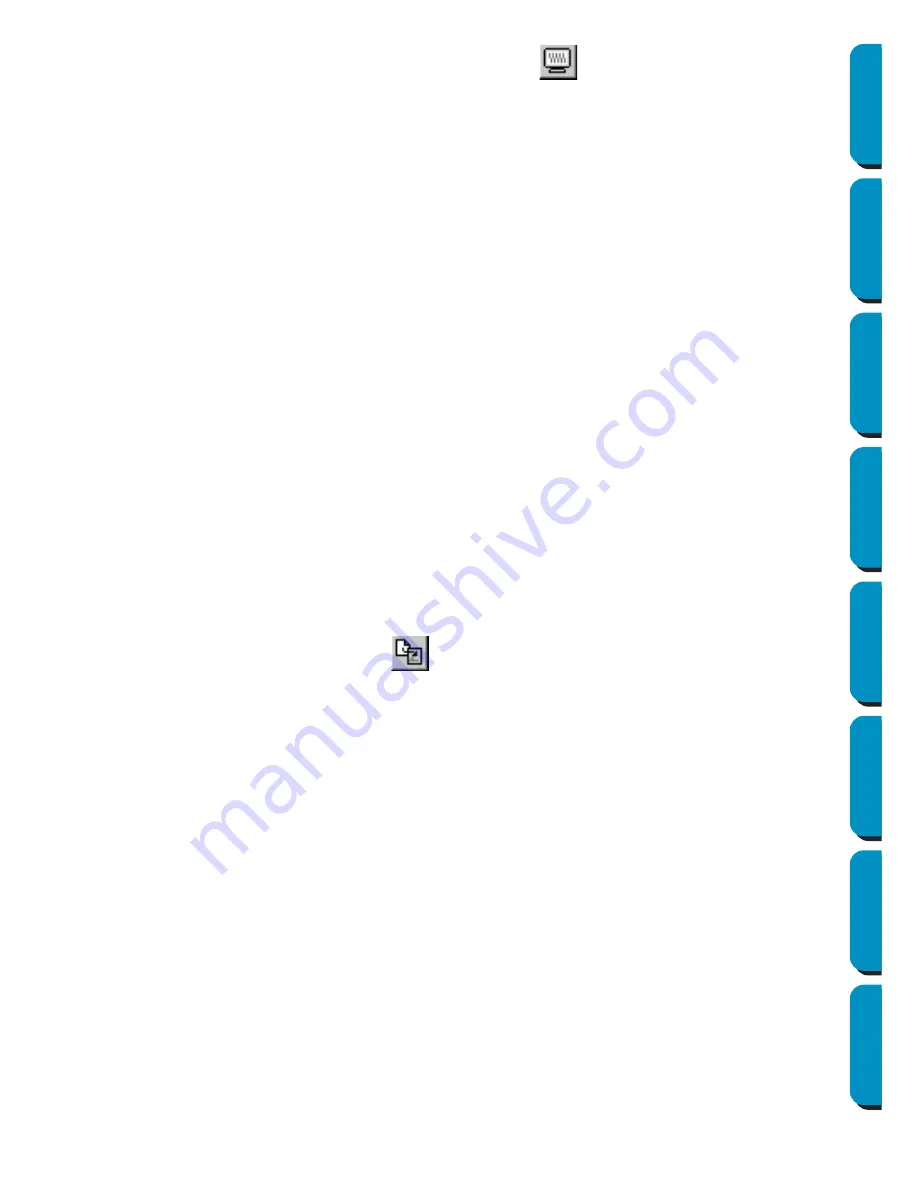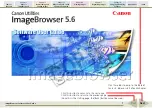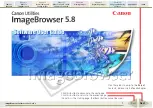
58
Contents
Before Using
Getting Started
Design Center
Layout & Editing
Programmable
Stitch Creator
Quick Reference
Alphabetic Index
2
To preview the image, click
Display
, then
Preview
or click
on the Toolbar.
NOTE:
Just like for the command
Option – Design Property
, if an object is larger than the embroidering
area or if an object is positioned so that it does not completely fit within an embroidering area, the
error message “Please change the object size or position.” is displayed instead of displaying a pre-
view of the image. After the object causing the error appears selected, change its size or position.
(If more than one object causes the error message to appear, the objects will appear selected in
the sewing order.)
NOTE:
Make sure that no pattern has been selected before clicking this command. If a pattern has been
already been selected, only that pattern is previewed.
■
Save the data
1
Click
File
, then
Save
or
Save As
, and then save the data.
All of the data is saved as one file (*.pes).
If the file size or the number of color changes is larger than the specified number or if one of the
patterns do not completely fit within an embroidering area, the message “Please change the
object size or position. Do you want to save the data anyway?” is displayed.
NOTE:
The saved file cannot be opened in a previous version (ver. 2.0x or earlier) of Layout & Editing.
NOTE:
If a Design Page for a Multi-position embroidery frame (130
×
300 mm, 300
×
130 mm, 100
×
172
mm, or 172
×
100 mm) is selected, you can select only “PES Version 2.5, PES Version 3.0, or PES
version 4.0 as the File Type.
■
Write the data to an original card
1
Click
File
, then
Write to Card
or click
on the Toolbar, and then write the data to an original
card.
Data for an multi-position embroidery frame is created by considering the data for each embroi-
dery frame installation position as one pattern and combining them.
Therefore, when this type of data is written to an original card, all of the data for one multi-position
embroidery frame pattern is saved as a combination of multiple patterns.
(For more details on the number of patterns that is written to a card, refer to “3. Check data”.)
















































